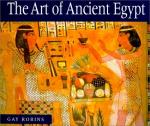|
This section contains 167 words (approx. 1 page at 300 words per page) |

|
fl. Ptolemaic Period (332–30 B.C.E.)
Writer of aphorisms
Lessons to His Son.
Ankhsheshonqi was a priest of the sun god Re at the god's temple in Heliopolis who, according to ancient Egyptian history, was implicated in a plot to assassinate the pharaoh. Although not a direct participant, he was thrown into prison for his failure to report the plot, which involved his childhood friend, Harsiese, who was also the pharaoh's chief physician. While in prison he wrote a teaching for his son. Ankhsheshonqi's teaching differs from earlier teachings because it consists of individual aphorisms. Though several of these sayings might deal with the same subject, they do not follow one another in any understandable sequence as was true in the earlier periods. Some scholars have tried to connect this work to the biblical book of Proverbs.
Sources
S. R. K. Glanville, The Instructions of Onchsheshonqy (London: British...
|
This section contains 167 words (approx. 1 page at 300 words per page) |

|




